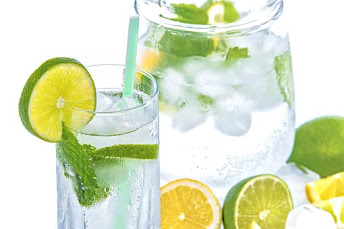Does drinking carbonated drinks increase acid level in the body? No. When you put a carbonated drink in your mouth, it does not enter your body.
They begin to pass
through your gastrointestinal tract, which, despite appearing to be
"inside," is actually outside your actual body.
Many animals, including you, are shaped like a donut or worm (a shape known as a toroid), and food and water pass through you, with only certain molecules entering your body via your intestines.
A few other substances can enter your
stomach, but nothing in soda. Consider this: if you swallow a rock, it passes
through your body but never enters your bloodstream.
Read: Which Cooking Method Is Best for Baby Food?
Of course, carbonated beverages have an interesting backstory as they pass through your body, absorbing various sugars and water.
However, the acid is neutralized
before it reaches that point. This is what happens:
The first stop is your stomach, which contains hydrochloric acid, potassium chloride, and sodium chloride (also known as "table salt").
When
secreted, this mixture, known as gastric acid, is significantly more acidic
than any soda, with a pH of 0.8. It is typically diluted in your stomach, but
it still maintains a pH of 1 to 3.
Read: What Foods Are Best To Cook For A 2 Year Old?
Carbonated
drinks are at the very top (meaning the least acidic) of that range, so they
dilute the acid already present and make your stomach contents less acidic, not
more acidic.
As
the soda and anything else you ate or drank leave your stomach and make their
way to your intestines, they pass through a small section called the duodenum,
which produces sodium bicarbonate — yes, the same stuff that baking soda is
made of! Although sodium bicarbonate is produced in the pancreas, it interacts
with your food in the duodenum.
This neutralizes the acid and prepares the food and drink mixture to pass through the remainder of the intestines, where water and nutrients are absorbed.
In
fact, the duodenum is the first part of your small intestine and begins the
nutrient absorption process by obtaining iron from food, which is one of the
first nutrients absorbed.
Your body's sodium bicarbonate neutralizes any acid in your carbonated drink and anything else you eat or drink.
Before the acid from the soda (and the more
powerful acid from your stomach) enters your intestines and begins to be
absorbed, it has already been chemically neutralized.
Read: What Is A Cosmopolitan Cocktail?
FAQs Related To Does Drinking Carbonated
Drinks Increase Acid Level In The Body
Do carbonated drinks increase acidity?
Background: Carbonated beverages, due to their high acidity and carbonation, may potentially aggravate gastro-oesophageal reflux disease (GERD).
Carbonated
beverage consumption is commonly recommended as part of lifestyle changes for
GERD patients.
Can carbonated drinks cure acidity?
According to a 2021 review, several studies found an association between drinking carbonated beverages and an increased risk of GERD.
To reduce acid reflux and
GERD, the National Institute of Diabetes and Digestive and Kidney Diseases
(NIDDK) recommends that people avoid carbonated beverages.
What are the negative effects of carbonated
drinks?
One of them is that it can deplete calcium from bones. Another disadvantage is that it can erode tooth enamel.
Another disadvantage is that it can irritate the
stomach. Previous research on the health effects of carbonated soft drinks,
also known as sodas or colas, has given rise to these concerns.
Read: Can Alcohol Cause Diabetes
Is carbonated drink a weak acid?
H2CO3
is a weak acid that can be found in soft drinks. Carbon dioxide gas is
responsible for the fizz that appears when you open a can of soda (CO2).
What drink neutralizes acidity?
Water
with lemon. Although lemon juice is highly acidic, a small amount of lemon
juice mixed with warm water and honey has an alkalizing effect that neutralizes
stomach acid.
Should you avoid carbonated drinks if you have
acid reflux?
The
carbonation in soft drinks, seltzer water, and beer causes stomach acid to
bubble up into your throat, causing an unpleasant burning sensation.
Eliminating carbonated beverages from your diet may help you control your
symptoms.
Does ginger increase stomach acid?
Read: Why Don't People In Europe Have Ground Beef?
Ginger not only increases intestinal motility, but it may also protect the gastric lining by preventing stomach acid from flowing back up the esophagus after meals.







